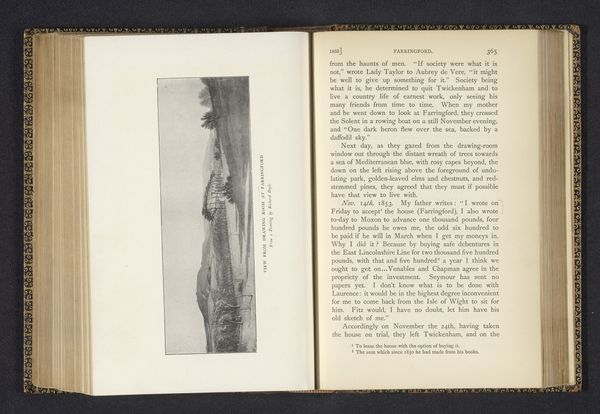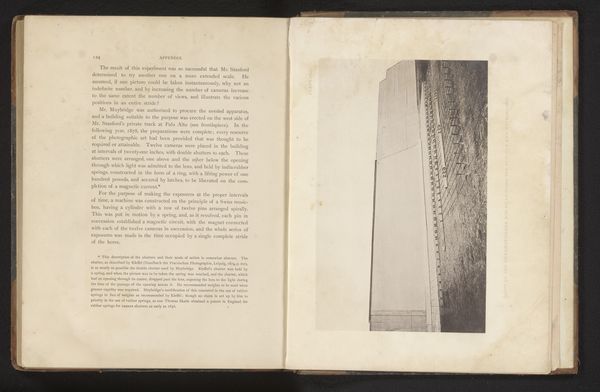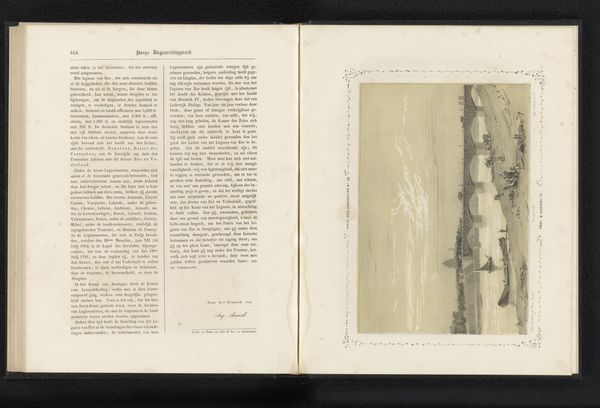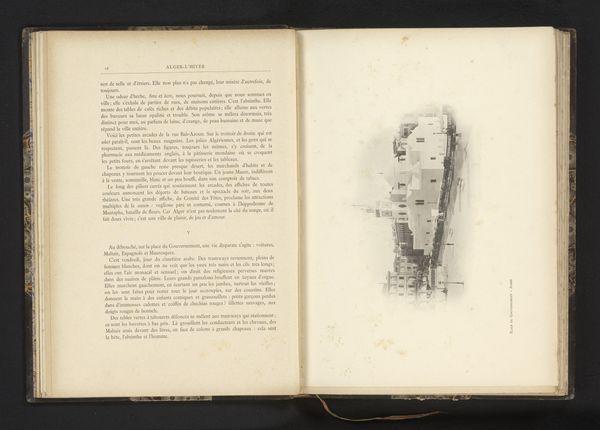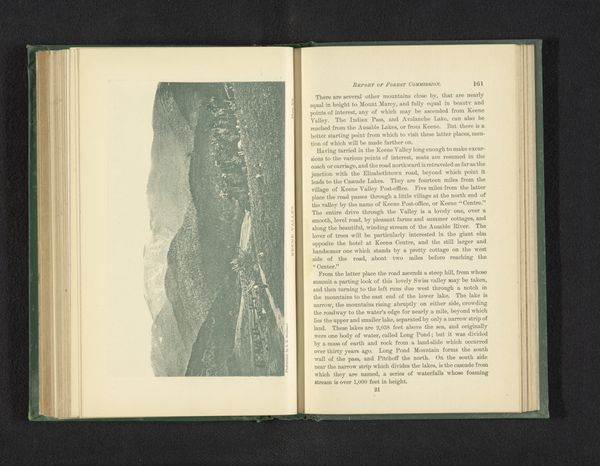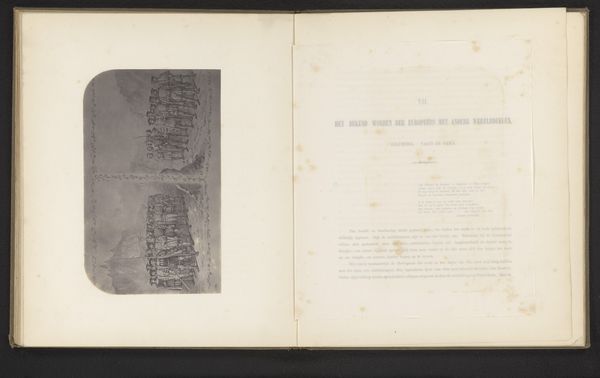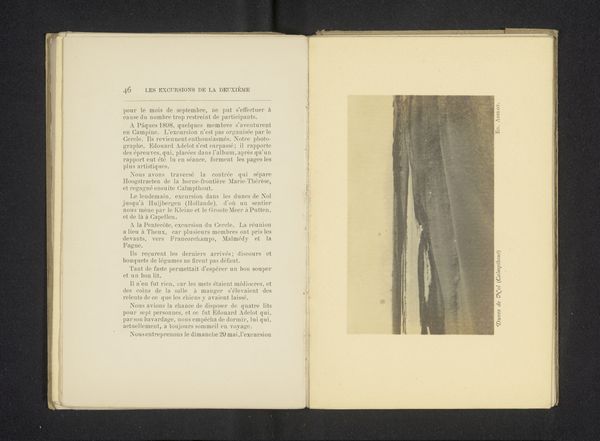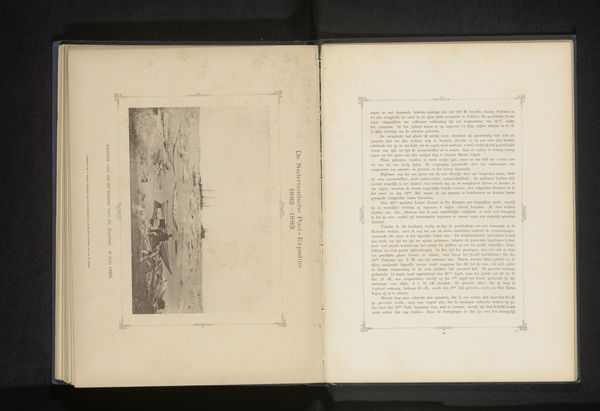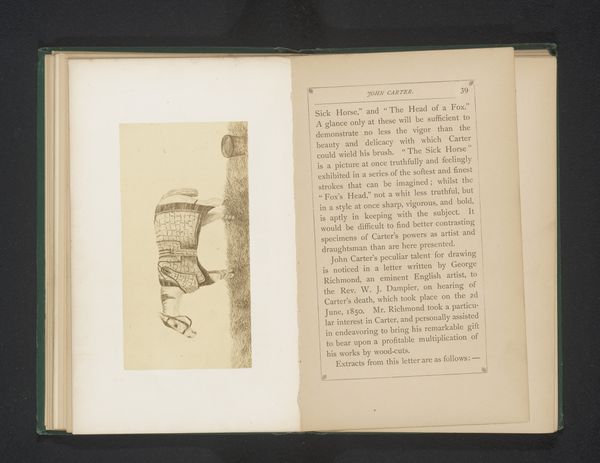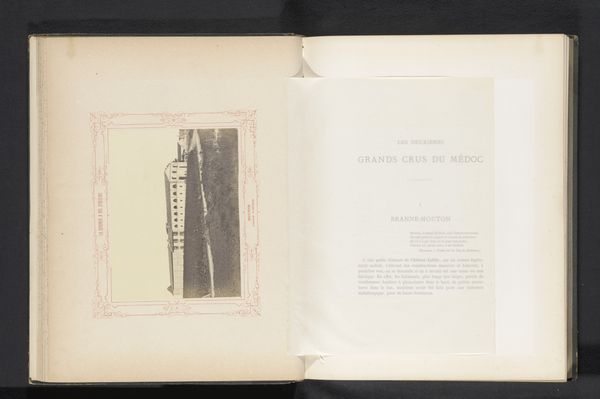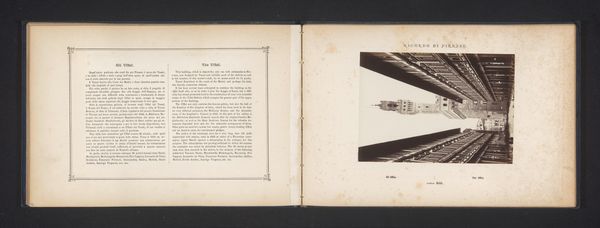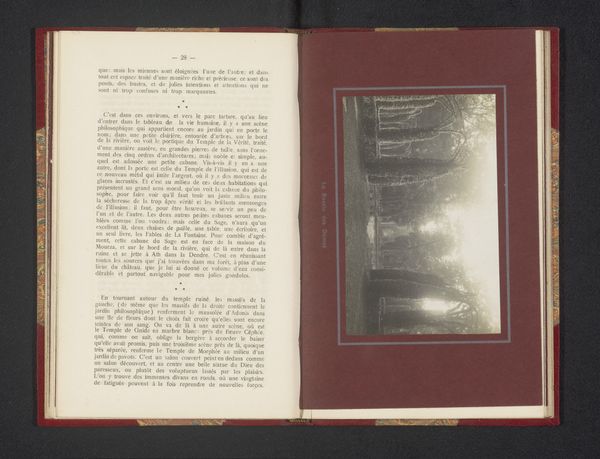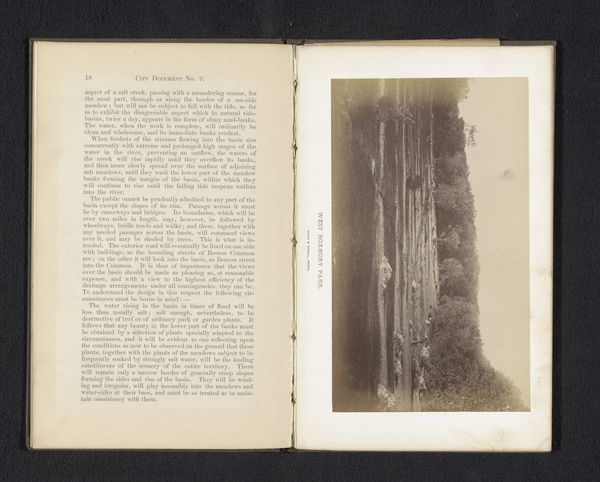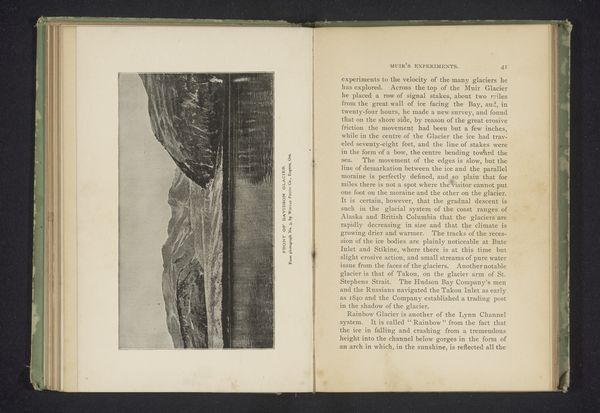
print, etching, paper, photography, albumen-print
#
aged paper
#
homemade paper
#
paper non-digital material
#
paperlike
# print
#
etching
#
book
#
sketch book
#
landscape
#
paper
#
photography
#
personal sketchbook
#
fading type
#
thick font
#
cityscape
#
letter paper
#
paper medium
#
albumen-print
Dimensions: height 84 mm, width 127 mm
Copyright: Rijks Museum: Open Domain
Curator: I'd like to begin with this image, a photographic print of "Gezicht op het kasteel van Beloeil." It dates back to before 1909 and appears to be affixed within the leaves of a book. Editor: It has an intriguing, dreamlike quality. The tonal range feels quite limited, almost monochromatic, giving the architecture a ghostly presence against what I assume is the water's edge. Curator: Indeed. The artwork’s presentation within a book speaks volumes. We are encountering it within a specific historical and cultural framework, presumably intended for a refined readership interested in art, landscape and perhaps even garden design, considering Beloeil’s renowned gardens. The presence of text beside it situates the image within a discourse. Editor: Right. Symbolically, the architectural view represents permanence, grandeur, established power—yet presented through a rather fragile, fading albumen print. There is a strong symbolic weight to this decaying photograph. Are we meant to consider the ephemeral nature of power? Of beauty itself? The heavy font and fading type of the opposite page contributes further to this idea. Curator: That’s a compelling reading. It underlines the socio-political implications as well. Representing a grand estate this way also invites contemplation on ideas of wealth and access, both visually depicted and implicitly embedded within the object as a printed medium. We see this not merely as art but as a printed artifact consumed and understood by its particular audience. Editor: Considering the presentation and medium, the book itself might become a symbolic container for memory. Its pages enclose this vision of the castle, perhaps signifying a desire to capture and preserve something slipping away with time. It's poignant. Curator: This intersection of place, representation, and the printed object gives insight into cultural attitudes, and speaks volumes beyond a mere depiction of the landscape. Editor: It leaves me with an intriguing sense of longing... a melancholy glimpse into a bygone era.
Comments
No comments
Be the first to comment and join the conversation on the ultimate creative platform.
